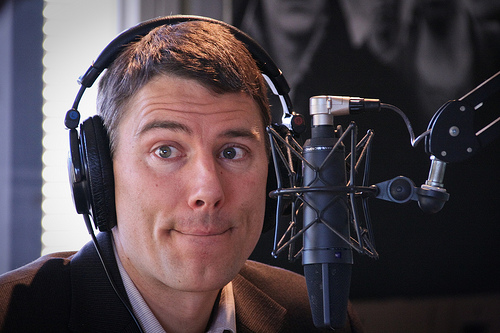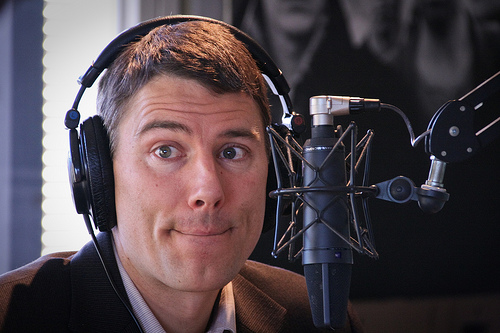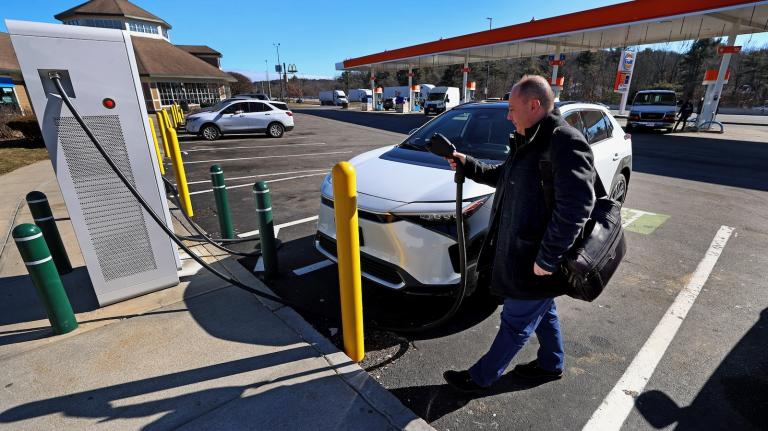The big news of day one at the World Conference on Sport and the Environment in Vancouver, British Columbia, was the unveiling of a carbon neutrality plan for the 2010 Olympics. The rest of the day’s events were a lot like the offset plan: solid at their core and short on details.
During a keynote address, socially responsible investment executive Thomas Van Dyck managed to drop the lines, “The green tide must lift all ships,” “Green is the new green,” and “We must put the eco back in economy,” all within 30 seconds, all without a smile or a trace of irony. That’s got to be worth an award or something.
The crowd — athletes, sports organizers, corporate sponsors, International Olympics Committee (IOC) officials and suitors from 2016 host city-finalists Chicago, Madrid, Tokyo, Rio — seemed like they could handle a bit more than inspirational slogans. Not hating, just saying. But there was some good stuff along with the cheerleading.
Vancouver Mayor Gregor Robertson
Introduced as a guy who bicycled to work to work this morning, the boyish, charismatic 43-year-old talked up Vancouver as a cosmopolitan, exercise-loving city, where it’s only natural to unite athletics and care for the earth via a global event such as the Olympics.
Robertson mentioned biking to work, which he said taught him that his city could provide more bike-friendly commuter routes. He offered something of a challenge to his municipal colleagues: “We want to be the greenest city in the world,” he said. “Not that it should always be a competition, because there are things we can learn from each other too. But we figure we’re leading North America, which isn’t all that hard to do in terms of the environment.” Booyah! Take that, Cleveland. Also, he biked to work this morning.
Prince Albert II of Monaco
No newbie to the climate action scene, His Serene Highness Prince Albert II has traveled to both poles to observe the effects of global warming and clamor for carbon regulation. In Vancouver he showed lots of love for the host city, province, and organizing committee, along with the IOC.
“What the IOC has done, what the IOC environmental commission has done and indeed what the Olympic movement has embraced is, for me, a return to the original Olympic spirit,” he said. “A philosophy of life with the goal of placing sport at the service of the harmonious development of man.”
Overall, it was an everybody-on-board sort of speech: “It is no longer possible to shirk the efforts necessary to save our environment,” he said. “This fight requires absolutely everyone’s attention.”
Premier of British Columbia Gordon Campbell
The province’s leader since 2001 spoke openly and passionately about his love for wood, saying “If you’re concerned about the climate, wood is the best building material there is.
Campbell said wood conserves carbon even in lumber form, is more resilient than steel, and has 400-times better insulation than steel. He said he’s helped rewrite building codes to allow wooden buildings up to six stories high. “It’s cheaper, it’s environmentally sensible, and we’ve got lots of it,” he said.
Mountain pine beetles have killed 80 percent of inland pine forests in B.C. — the beetle population has exploded because winters are no longer cold enough to kill most of them. The new 350,000 square-foot Olympic speed skating rink in suburban Richmond has a wooden roof, made from beetle-killed B.C. pines. Campbell considers this the sort of lemons-from-lemonade solution B.C. needs to showcase when the Games begin next February.
“We have to be willing to start with ourselves and be an example,” he said. “If no one’s willing to lead, we won’t make any progress.
“I think one of the most important things we can do is tell stories of success. Too often we just hear about what isn’t working.”



